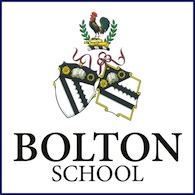One of the most obvious signs of the start of summer term is the disappearance of the football and rugby posts, shorter grass, well mown squares and side screens. The cricket season is upon us. But just why does cricket fit the ethos of good schools so well and why should more young people be encouraged to play?
Try explaining cricket to aliens. A game for 24, 2 never take part, 13 are on the field and, of those, 3 are in action at any one time. ItÆs obvious, isnÆt it!
Yet it is a great sport for developing aspects of character.
There is no doubt that the encounter between bowler and batsman is deeply personal. There is no one else to blame, no one involved except the skills of both players. As a ball loops down towards a fielder waiting for the catch the moment is undeniably one of personal challenge. In that way it is a game where the skills of the individual are very clearly in a spotlight. And there is a very direct link between those skills and practice û the numbers of hours played on the field and in the nets matters. There is obviously room for raw talent, but much more room for sheer commitment to getting better. In these ways cricket is a game for developing individual responsibility, determination and tenacity. The hard work is done off the field in training.
Yet cricket is also very definitely a team game. That is clear in the field, where each member must be alert for that one crucial moment û saving a four, making a catch û which could swing the game. Some might be more active than others but all must be involved on a winning side. The same is true in batting. In a recent game the top 5 batsman, through a series of misfortunes, were out for half a dozen runs. The team ended with a respectable score of 90 as the middle order stepped up to the challenge. One or two great players do not make a winning team. They will always have a bad day, an unlucky hit and that is when others must be on hand for the team. This sense of collective endeavour is important for character. So are the concentration, focus and commitment needed.
Bolton School has run an MCC Cricket Hub for many years drawing young people from a wide range of schools into the game. The local leagues around Bolton retain much of their former strength as social activities for young and old. This is one area where as a locality Bolton can build on real strength and in doing so build the capacity of the young people both in terms of being active and in terms of their character.

Leave a Reply